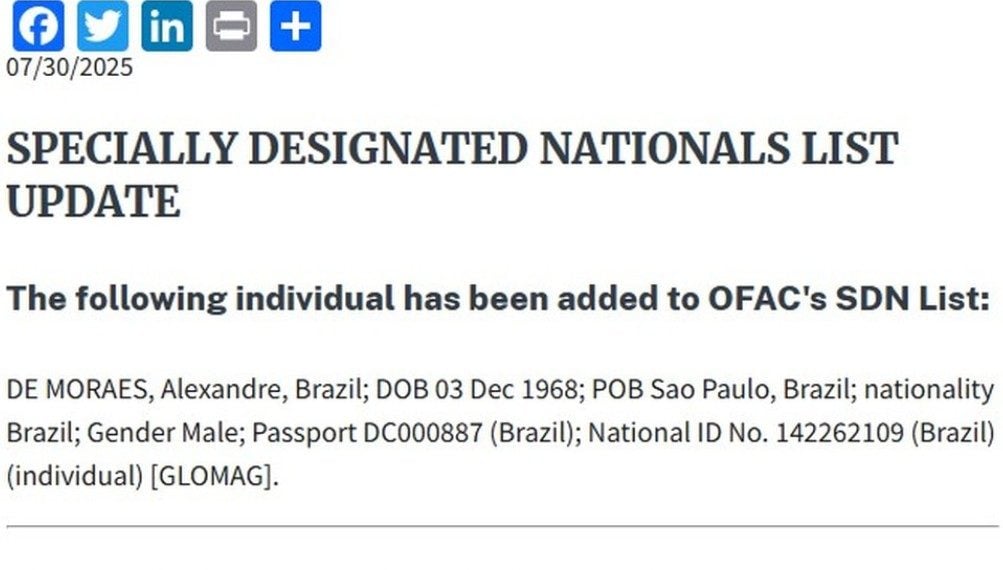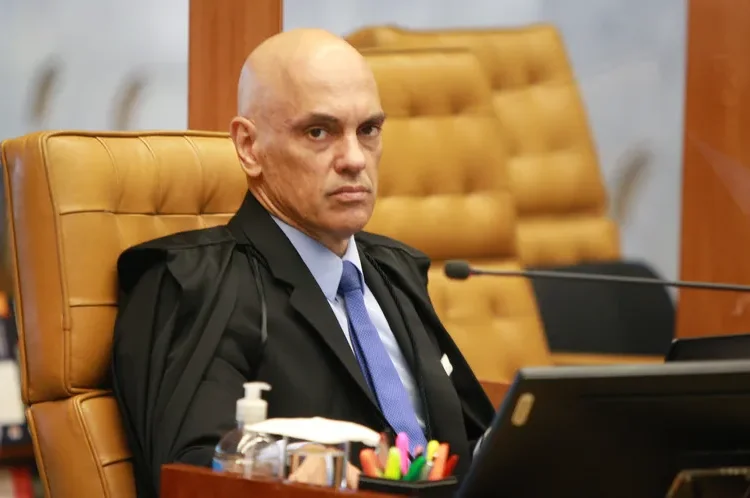On Wednesday (30), the United States sanctioned Brazil’s Supreme Court Justice Alexandre de Moraes under the Magnitsky Act. The measure, published by the Office of Foreign Assets Control (OFAC) of the U.S. Department of the Treasury, is unprecedented in targeting a Brazilian magistrate and deepens the diplomatic crisis between the two countries.
Created in 2012, the Magnitsky Act allows Washington to impose sanctions on foreign citizens accused of large-scale corruption or serious human rights violations. The name is a tribute to Russian lawyer Sergei Magnitsky, who died in prison after exposing a billion-dollar embezzlement scheme in Russia. In 2016, the scope of the law was expanded to cover global cases, making it one of the toughest tools in U.S. foreign policy.
Among the sanctions the act provides for are the freezing of assets in the United States and financial restrictions, as well as a ban on transactions with U.S. companies and citizens. The OFAC applies and monitors the measures.

The imposition of the sanction reignites a diplomatic crisis because it means direct U.S. interference in Brazilian internal affairs, attacking a judicial authority conducting investigations into the coup attempt of January 8, 2023, in which former President Jair Bolsonaro was utterly involved.
The government have classified the U.S. attempt to influence the Brazilian judiciary as “unacceptable interference,” especially since it comes amid the trade dispute triggered by Trump’s tariffs on Brazilian products.
The pressure to impose sanctions also met with resistance from the United States Treasury itself. Sources heard by the Washington Post said that some of the agency’s technicians warned of the risk of undermining U.S. credibility in defending democracy, since the sanction would be politically motivated, in retaliation for judicial decisions affecting Bolsonaro and his allies.




